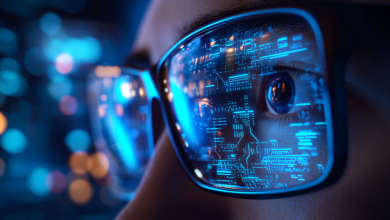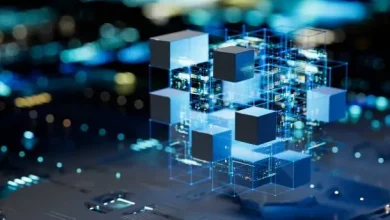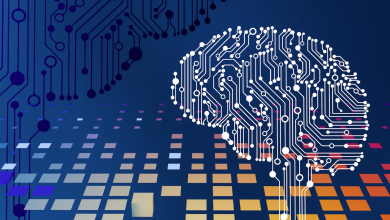
Introduction: A New Era of Convergence
Artificial Intelligence (AI) and Blockchain have converged and moved to beyond the hypothetical—it’s a strategic necessity. Companies, startups, and all levels of government are capitalizing on this convergence to address problems of transparency, automation, and data ownership. To repeat, AI supplies the cognitive function layer enabling systems to learn, adapt, and automate decision making. Blockchain can provide an immutable ledger for record keeping and allow distributed ledgers to be used, enhancing trust, integrity, accountability, and traceability.
Together they represent a projection of what we term as Decentralized Intelligence, which we see as a dismantling of many industries in a major paradigm shift away from traditional models. More and more organizations are looking for enterprise class blockchain solutions to fundamentally integrate an AI system with the blockchain infrastructure at the protocol layer and application tiers.
One of the notable figures in this space is Neel Somani, a blockchain developer and founder of Eclipse Labs, who has worked on scaling solutions that bridge blockchain infrastructure with real-world enterprise needs. His focus on modular blockchain architecture reflects the same convergence trend—where AI and blockchain combine to create systems that are both scalable and intelligent.
The Why: What’s Motivating the Fusion?
1. Trust + Autonomy Working Together at Scale
Trust is important in an economy full of deepfakes and misinformation. Blockchain using cryptography ensures data authenticity while AI enables systems to make autonomous decisions based on that data. The combination reduces human error and or influence.
2. Smart Contracts
Smart contracts were, well, smart contracts. But they were also static. Now enterprises want smart contracts that can change and adapt based on contextual data. AI provides a pathway toward adaptive smart contracts, a focal point of new smart contract development services.
3. AI Needs Verifiable Data
AI systems are only as good as the data they are trained on. Blockchain delivers a tamper proof source of verifiable, decentralized data making it ideal for training high-integrity AI models.
4. Real-time automation
In trade finance, supply chain, and other areas enterprises need instantaneous and trustworthy automation. Blockchain confirms an action has happened; AI will deliver the trigger.
According to MarketsandMarkets, the Blockchain AI global market size will grow from USD 228 Million in 2020 to USD 703 Million by 2025, with a compound annual growth rate (CAGR) of 25.3%.
Likewise, Fortune Business Insights projects a CAGR of 23.6% from 2022 – 2027, indicating strong market confidence in AI-blockchain convergence.
Use Cases Where AI and Blockchain Converge
-
Supply Chain Traceability
AI algorithms will scan for anomalies and delay forecasting, and Blockchain will store a record of all checkpoints. The combination provides visibility across the lifecycle.
-
Health Care Data Rights
Patients would be able to provide an AI engine temporary access to encrypted health records stored on a private blockchain, allowing for predictive diagnosis without compromising data privacy. One driver of this trend is a 2023 survey in which 25% of health care blockchain applications used AI-led predictive diagnostics, illustrating that there is an increasing procurement and endorsement of decentralized intelligence in important industries.
-
DeFi Risk Management
Many DeFi applications now use AI to estimate borrower risk and the terms of the loan are established in smart contracts. Most community developed DeFi platforms are built by a custom blockchain development company for efficient, rapid delivery time.
-
Decentralized AI Marketplaces
Pioneering projects such as Ocean Protocol and Fetch.ai are establishing peer-to-peer AI agent marketplaces. Many companies have created their own Decentralized AI marketplace using enterprise blockchain.
-
Legal Tech Automation
AI will be used to automate legal document examination and blockchain will persist the versioning. Smart contracts will deliver compliance clauses thus minimizing manual working hours.
-
Government Use Cases
Estonia is a pioneer with the new convergence of AI and blockchain, which government use case can quickly and securely automate a public service. The UK and UAE are experimenting with Ai led document authentication for land registries using blockchain.
Regulatory and Compliance Perspective
Regulatory frameworks are advancing. As the future use of AI in high-risk areas like healthcare and blockchain’s influence in financial compliance grows, organizations must proceed with caution and lead with compliance.
As an example, the new EU AI Act and GDPR impose restrictions on algorithmic transparency and data privacy. In other sensitive regulatory environments where HIPAA and PCI-DSS regulations complicate blockchain solutions, organizations utilizing a custom blockchain development company need to ensure that all these frameworks are incorporated into the design of the system they are implementing.
Why Enterprises Seek Custom Solutions
Most off-the-shelf platforms are either AI-first, or blockchain-native. That is why enterprises at scale are now engaging custom blockchain development companies to build hybrid systems that:
- Leverage AI to analyze billions of data points,
- Have records stored on-chain for auditability, and
- Manage automated workflows through the smart contract.
The analogy of “cutting out the middleman” is attractive in regulated areas such as finance, insurance, and healthcare, where compliance matters.
Obstacles Hard to Avoid
Although these technologies hold great potential, they are not a solution to every concern.
-
Scalability
Blockchains that are public still face issues with the throughput of transactions. The addition of heavy AI models leaves the situation even worse.
-
Ethics & Governance
When autonomous AI systems engage with decentralized blockchains, who is accountable? Companies need to define ethical boundaries and auditing procedures.
-
Security
The existence of smart contracts’ vulnerabilities and malicious AI attacks never go away, even if organizations are using systems already developed. A reputable smart contract development service will have an extensive level of auditing, testing and simulation.
It’s Important to Hire the Right Skill set
If companies intend to build such elaborate systems, they will need more than regular developers. They will need architects for the blockchain, engineers for AI models and strategists for design to put it all together.
If you want to build AI intelligent dApps or develop smart contracts that automatically adapt, it is important to retain AI trained developers with transdisciplinary competencies. Companies which support this ecosystem will offer consulting services as well as providing implementation services.
The Future: Autonomous Enterprises
In the near future, we will be seeing decentralized autonomous enterprises (DAEs)—organizations driven by smart contracts, operated by AI and verified by blockchain. Picture a logistics enterprise that is routing vehicles with AI-driven predictions whose drivers are automatically compensated into their crypto wallets, and no humans involved (“driverless logistics” to go along with “driverless cars”).
Companies that embrace this model early will not only recover costs but also gain adaptive capacity to thrive in disruptive markets. To achieve that, companies will need to partner with a blockchain development service that not only provides bespoke development but also ai integration.
Final Thoughts
The coming together of AI and Blockchain in 2025, represents not a single trend, but rather the inception of a new layer of infrastructure, enabling trustless, intelligent systems.
Whether you intend to apply AI as an enterprise automation solution, or whether you are discovering enterprise blockchain solutions to offer transparency, combining the two will produce exponential value.
If organizations wish to align themselves up to the next big wave, they will need:
- A willingness to invest in modular, hybrid architectures
- To partner with an experienced smart contract development service
- To hire AI developers who understand how to work with Decentralized Protocols
Decentralized intelligence is likely to define the next decade of technology, so what are you waiting for? The time to build is now!





